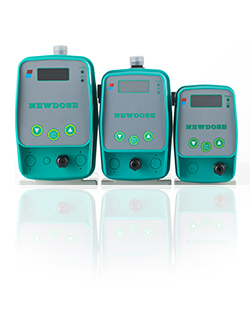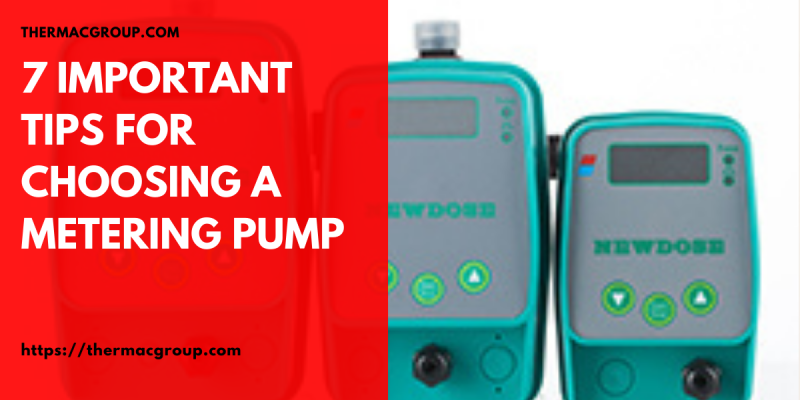Metering pumps are used to transfer a predetermined volume of liquid from one place to another within a specific timeframe. Although they can be used to transfer any type of viscous liquid, as well as acids, bases, and solvents, they are often used in a variety of municipal water and wastewater applications.
A metering pump can be altered to provide different flow rates. They are useful when a precise volume is to be delivered, for example when dispensing chemicals for disinfection, filtration or coagulation. You can easily change chemical dosage rates according to process conditions.
They are different from pumps used for transfer applications as internal operating clearances are much tighter, which minimizes fluid slip internally. This also allows highly accurate, measured amounts of fluid to be metered and transferred.
When selecting a metering pump, it is important to take the following into account:
- What application data can you compile?
It is essential to have correct and complete application data to ensure the pump will work correctly, with minimal maintenance. You can share the following information with the pump manufacturer to ensure you get the right pump for the job:
- flow rate (minimum, normal, maximum)
- inlet and discharge pressures (minimum, normal, maximum)
- viscosity
- temperature (minimum, normal, maximum)
- the fluid being handled
- whether any solids are present, and if so, the percentage, maximum particle size, and hardness of solids
- motor data (phase, hertz, voltage) and the area classification
- What is the pump going to be used for?
Discuss how you intend to use the pump with your pump manufacturer, who may have suggestions on designs or better options. It’s important to identify all the possible conditions under which the pump is required to perform as it can be expensive and challenging to fix a problem resulting from application conditions that are overlooked. Be sure to point out that the pump is going to be used for a metering job.
For even greater accuracy, your vendor may advise you to sacrifice the additional clearances applied to pump parts for high viscosity at the cost of somewhat higher horsepower requirements. It’s also important to note that high temperature applications have lower viscosities, so slip factor should be considered if substantial differential pressure is present.
- What lubricants do you need?
Most metering pumps, depending on their design and the pumping conditions they will operate in, need lubrication for the bearings and seals. These parts can be damaged if they run dry for even a short period of time, so make sure to ask your vendor about your pump’s lubrication needs.
- Does your pump require ancillary equipment upstream and downstream to enhance its performance?
Some pumps may use strainers, isolation valves, pressure relief valves or calibration columns. Check with your pump manufacturer on the specific needs of your metering pump, such as what mesh size the strainer should be, or the setting of a pressure relief valve.
- Confirm if your pump needs an external pressure relief valve.
Most positive displacement pumps require the installation of an external pressure relief valve in the discharge piping. This is often an additional layer of precaution to protect the pump, especially if there is a possibility of a restriction in the line such as a plugged nozzle, filter or isolation valve.
- Do you need to store the pump for a long period of time?
If you intend to store the pump for a long period of time, or between uses, you may need to apply a coat of oil to machined or unpainted surfaces, employ special packing methods or use special materials for storage. You might even need to schedule rotations of the motor and pump shaft, depending on the duration of idle time. Make sure you communicate the amount of idle time you anticipate, so your pump manufacturer can best advise you on the right pump for your needs, and advise if any maintenance will be required.
- Before you install your pump, make sure you read the installation and operation manual and take note of recommended mounting and piping practices.
Although your metering pump might be fairly rugged, incorrect installation, mounting or piping can affect your pump’s performance. Make sure you read and understand the manual to ensure you get it right.
For more information about metering pump malaysia, please visit https://thermacgroup.com


